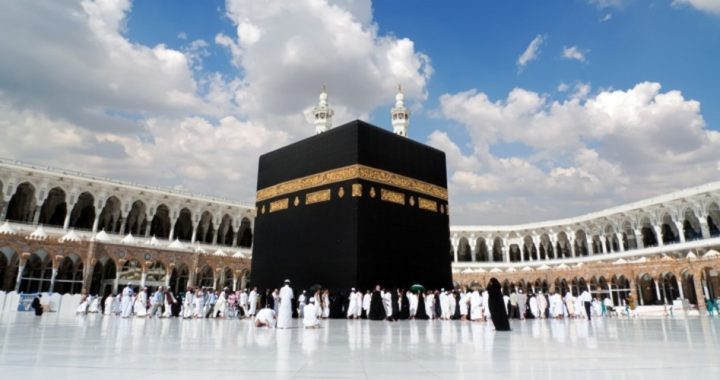
A tweet published by Canada’s Foreign Ministry last Friday set off a sandstorm of activity in Saudi Arabia, which culminated in the expulsion of the Canadian ambassador, the recall of Saudi Arabia’s embassy staff in Canada, and a Saudi freeze of any new trade or investment with Canada. The offending tweet called for the release of human-rights advocates held in Saudi Arabia. Saudi Arabia believes the tweet constitutes “interference” in its internal affairs.
Last week, Canada said it was “gravely concerned” over a wave of arrests of human-rights advocates in the Kingdom of Saudi Arabia. Among those arrested was Samar Badawi, a gender-rights activist and the sister of Rai Badawi, a blogger who was arrested in 2012 for “insulting” Islam. Rai Badawi was later sentenced to 1,000 lashes and 10 years’ imprisonment.
The initial tweet said, “Canada is gravely concerned about additional arrests of civil society and women’s rights activists in #SaudiArabia, including Samar Badawi. We urge the Saudi authorities to immediately release them and all other peaceful #humanrights activists.” Sounds harmless enough, and something that should be expected by a Justin Trudeau-led government.
But the Saudis reacted almost as if Canada had just declared war. Officials in Riyadh called the tweet “a blatant interference in the Kingdom’s affairs, against basic international norms and all international protocols.” The Saudis, now led by 32-year-old Crown Prince Mohammed bin Salman, then gave the Canadian ambassador 24 hours to leave the country and recalled its own embassy staff from Ottawa.
In addition, Riyadh has announced a freeze on all future trade with Canada and an end to an educational exchange program, which will affect at least 12,000 Saudi students currently in Canada. The government plans to relocate the students to schools in the United States, Great Britain, Australia, New Zealand, and Singapore.
Then on Monday, a group known as Infographic KSA, which is connected to the Saudi government, published a bizarre and tasteless tweet that seemed like a not-so-veiled threat to Canada. The tweet contained an image of Toronto’s 1,815-foot CN Tower with a passenger plane flying toward it. A caption of the photo read, “As the Arabic saying goes: ‘He who interferes with what doesn’t concern him finds what doesn’t please him.’” Another caption directly above the CN Tower said, “Sticking one’s nose where it doesn’t belong.”
The tweet was deleted a few hours later, but its effect was still chilling, especially given the fact that 15 of the 9/11 hijackers were Saudis. An apology from Infographic KSA read, “Earlier we posted an image, which is why we deleted the post immediately. The aircraft was intended to symbolize the return of the Ambassador, we realize this was not clear and any other meaning was unintentional. We apologize to anyone who was offended.”
The Saudi Arabian feud with Canada comes at a time when the young crown prince looks to modernize Saudi Arabia and bring it more inline with the 21st-century world. Earlier this year, women were allowed to drive in Saudi Arabia after a decades-long ban on the practice, although relatively few females have ventured out on the road as of yet. But such changes can be expected to cause culture shock in a nation that some critics say has been essentially stuck in the seventh century for hundreds of years. And, apparently, the Saudis don’t like opinions from the outside world.
Canada, for now, is sticking to its guns. Prime Minister Justin Trudeau is a staunch defender of women’s rights, even to the point of creating a “gender balanced” cabinet. He may even receive a boost domestically with his party’s approval polls tanking. Thumping his chest against Saudi Arabia could turn out to be good political move, as his Liberal Party has been losing ground to the conservative Tory Party over the last year.
The initial tweet has been credited to Canadian Foreign Minister Chrystia Freeland, one of Trudeau’s appointees. Saudi culture being what it is, one wonders if the fact that the tweet came from a woman made the situation worse. Regardless, Freeland, like Canada, has not backed away from the tweet one bit.
“Let me be very clear for everyone here and for Canadians who may be watching and listening: Canada will always stand up for human rights in Canada and around the world,” said Freeland. “Women’s rights are human rights.”
In November, Saudi Arabia had a similar skirmish with Germany over the foreign minister’s claim that Saudi Arabia had orchestrated the surprise resignation of Lebanon’s Prime Minister Saad al-Hariri, a charge denied by the Saudis. Saudi Arabia recalled its ambassador to Germany and cut back commercial ties between the nations. Crown Prince Mohammed bin Salman has a touchy side, it seems.
Neither Saudi Arabia nor Canada risks much in this war of words and Twitter posts. Canada’s largest engineering and construction company, SNL-Lavalin Group, Inc., has a 13-billion dollar contract in Saudi Arabia, but the company has reported “no immediate impact” on its dealings in Saudi Arabia thus far. The withdrawal of ambassadors is only a symbolic move. The 12,000 displaced students are more of a pain for the students than anything else.
In the end, it’s a playground battle between two of the middling tough kids in class. It’s interesting to the bigger kids but there’s not much chance of war breaking out over it. Good for Canada for standing up for itself. Plus, it’s good to see how the new leader in Saudi Arabia handles himself when pushed.
Image: Aviator70 via iStock / Getty Images Plus




